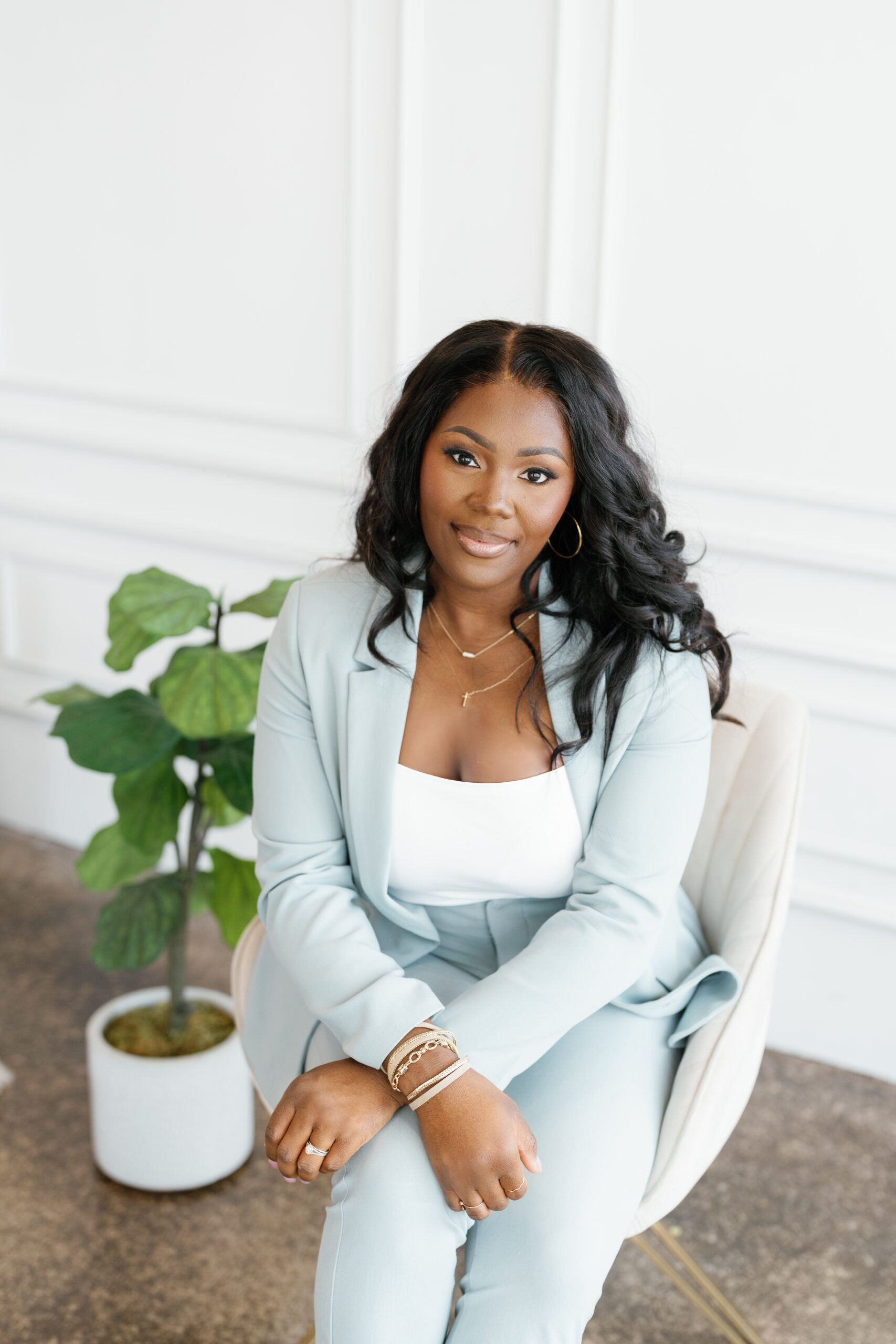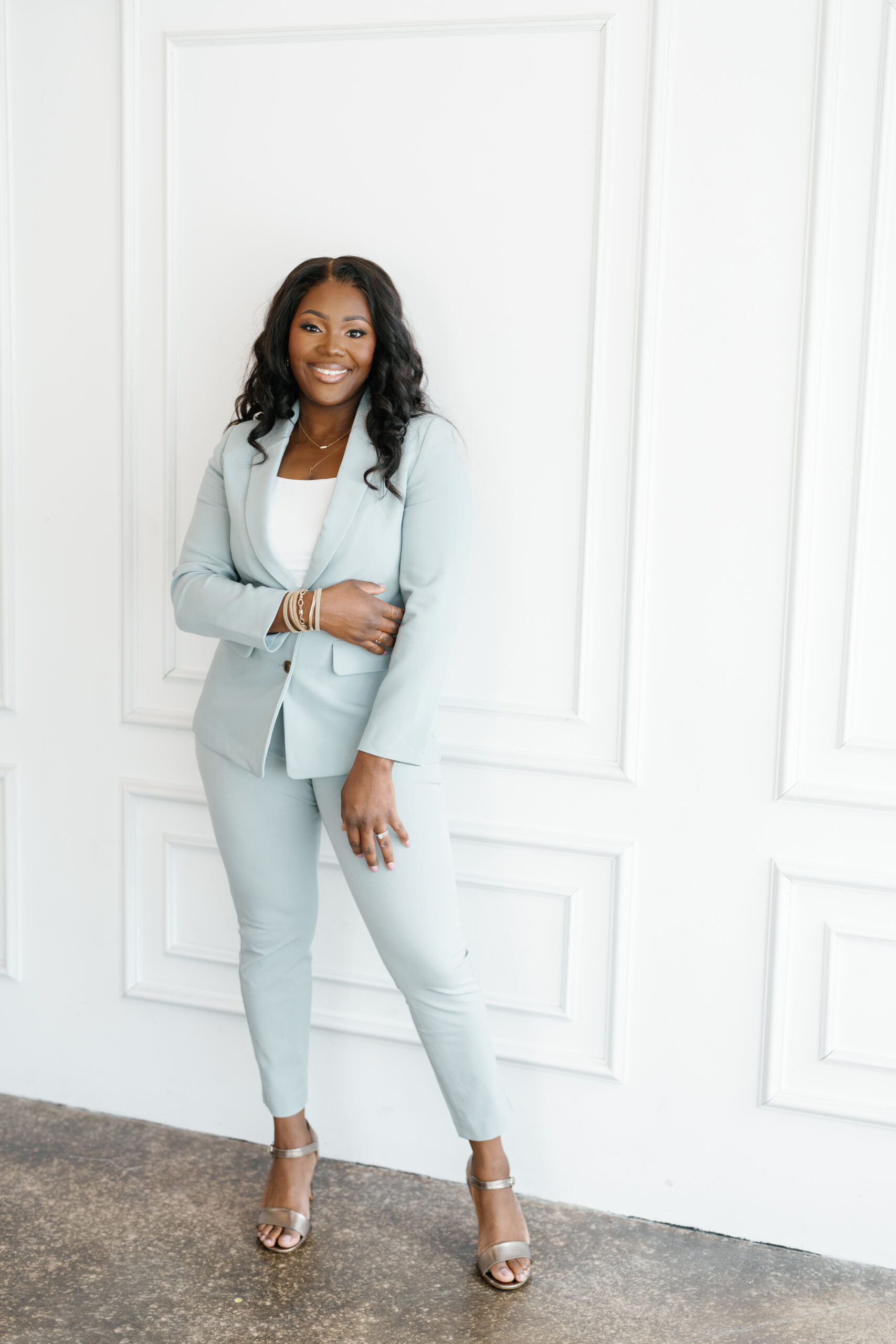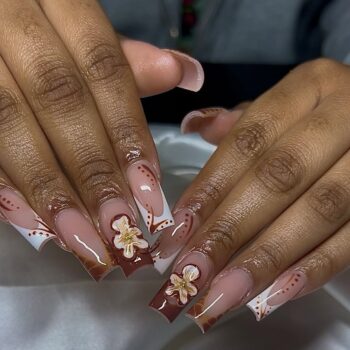As part of our BNS Women’s Month Campaign spotlighting Women’s Health and Healthcare, and the urgent need for action, we’re amplifying the voices of those leading change. One such trailblazer is Folake Ike, a dedicated women’s health advocate who believes in the power of conversation. In this interview, Folake, also known as The Fancy Therapist, discusses how therapy can be a powerful tool for women navigating identity shifts, motherhood, grief, and healing.

What inspired you to focus your practice on women’s health, and how has your personal journey shaped your approach to therapy?
The inspiration for opening Peace of You Therapy Services came from my own postpartum journey. While I felt prepared for labour and delivery, I wasn’t ready for the changes in relationships and how they would impact my mental well-being. I was burdened by the need to hold on to my old identity before becoming a mother and a wife. I felt stuck and unsure of who I was anymore.
Amid grief and loss, I launched my private practice to help other women explore self-identity, manage stress, anxiety, or depression, and find their way through the trenches of motherhood. That dark period became a catalyst for providing light to others, through Her In Bloom.
I offer a judgment-free space where women can speak the thoughts they’re too afraid to say out loud. I provide an outlet for the tough, messy conversations and help normalise their experiences. Being a woman who has also had to restore her mental health, my approach blends personal experience with proven therapeutic techniques.
Have you ever gone through something and felt like no one else ever has? Like you didn’t know who to talk to — felt lonely, isolated, ashamed, or confused? I have. My work supports women through life stages that stir up all those emotions and make life feel like tangled cable cords.
I want to remind women that there is nothing new under the sun. There is always hope for a different ending, and there are resources to help. I’m also grateful to the women who have trusted me to walk alongside them in their healing.

In your experience, what unique mental health challenges do women face today, and how do you tailor your therapeutic strategies to address them?
Women often struggle with identity, especially when juggling conflicting roles: daughter, mother, wife, friend, professional, and more. We see others who seem to have it all together and become our own harshest critics. In fact, The Journal of Behavioural Science shows that women often evaluate themselves more critically than men, leading to anxiety, fear of failure, and dissatisfaction.
I use various strategies in therapy, one of which is narrative therapy. It gives women permission to rewrite their stories in a way that reflects their current values and desires. I help them understand that their problems do not define them and that identity can exist separately from those problems. This empowers them to find their voice and embrace their full selves, not the version society has imposed or the one they have been repeating to themselves.
My role is to show that healing is possible, and it is more than okay to carve out space for yourself. You deserve a compassionate, judgment-free zone for your self-discovery.

Looking ahead, what changes would you like to see in the mental health field for women, and what advice would you give to young women considering a career in this area?
Ideally, mental health would be a global priority for all women. I want every woman to have at least one trusted professional she can turn to for everyday challenges. Unfortunately, cultural stigma, gender inequality, lack of awareness, limited access, religious beliefs, and policy gaps often get in the way.
To young women considering this field: find a therapist for yourself first, even if it takes time to find the right fit. Supporting others can surface our own unhealed wounds. To build strong therapeutic relationships, we must first have a healthy one with ourselves. Pour into yourself before pouring into others. Know what it is like to be on the other side of the therapy room. You deserve that safe space too.





Fantastic site. A lot of helpful info here. I’m sending it to some buddies ans additionally sharing in delicious. And naturally, thanks on your sweat!